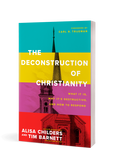|
What on earth are we to make of the Bible? Is it God's Word? A human cultural product that simply reflects the beliefs and observations of ancient people? Something else? This is the question du jour in Christian circles. Typically, conservative theologians maintain that the Bible is the inerrant, infallible, authoritative, and inspired Word of God. Progressive theologians tend to define those words differently, or abandon them altogether. Some affirm that they take the Bible seriously but argue that we need to re-interpret it. In their view, the Bible condones immoral practices and teachings when taken at face value.(1) A couple of years ago, Rob Bell told Oprah Winfrey that the Christian church is "irrelevant when it quotes letters from 2,000 ago" to defend its moral principles.(2) In an excerpt from his upcoming book, What is the Bible?, Bell calls it "a profoundly human book."(3) How do we wade through this amalgam of views and understand what the Bible actually is? I suggest we look to Jesus. The New Testament wasn't yet written when Jesus walked the earth, but we can certainly take a cue from His understanding of the Old Testament. What did He think it was? Here are 8 things the Gospel accounts tell us that Jesus affirmed about Scripture. (This post will deal with the first 4): 1. It is the Word of God. If there is one thing Jesus affirmed over and over again, it's that the Old Testament Scriptures are the "Word of God." In Matthew 15:4, He referenced several commands from Exodus, Leviticus, and Deuteronomy saying, "For God said: Honor your father and your mother; and, The one who speaks evil of father or mother must be put to death." In Mark 7:8-13, He criticized the Pharisees for leaving "the commandment of God," and adding their own traditions to Scripture. He told them that they "void the word of God by your tradition." In Matthew 22:31-32, just before quoting Exodus 3:6, He said, "Have you not read what God said to you..." (Emphasis mine) To Jesus, Scripture wasn't "a profoundly human book." It was the very Word of God. 2. It is inspired by God. One day, Jesus was teaching a large crowd in the temple courts, and some Pharisees were gathered there. In a brilliant exchange, Jesus appealed to the inspiration of Scripture to help them understand that the Messiah is more than just a descendant of David. He said, "How is it then that David, speaking by the Spirit, called him [the Messiah] 'Lord'?" It's here that we get our very definition of Divine Inspiration—from Jesus Himself. The authority and inspiration of Scripture are closely connected. Whenever Jesus said, "It is written," He was also appealing to inspiration. John Wenham wrote, "It is clear that Jesus understood 'It is written' to be equivalent to 'God says.'"(4) In fact, Jesus and His apostles quote the Old Testament by using the phrase "it is written," (or it's equivalent) over 90 times in the New Testament. (5) Jesus didn't see Scripture as simply a human cultural product—He saw it as the inspired Word of God. 3. It is authoritative. The authority of the Word of God has been questioned ever since Eden's silver-tongued serpent spoke those four fateful words to Eve: "Did God really say?" (Genesis 3:1) When that same serpent tempted Him in the wilderness, Jesus turned the tables by appealing to the authority of Scripture. All three times Jesus fought temptation with these three words: "It is written." In his book, Unbreakable, Andrew Wilson noted: Consider the way Jesus fights. He has the resources of heaven available, yet he fights by using the authority of the Scriptures....His position is unequivocal: "You're trying to tempt me, but the Scriptures have spoken. That's the end of the conversation." To Jesus, the Scriptures weren't just some kind of ancient travel journal or the spiritual conjecture of common men—He considered the Old Testament Scriptures to be the fully authoritative Word of God. 4. It is historically reliable. Jesus continually referred to Old Testament events as authentic history. He spoke of Abel, Abraham, Lot, Isaac, Jacob, Moses, David, Solomon, Elijah, Elisha, and Zechariah as historical people.(6) He described events such as the institution of circumcision, the judgment of Sodom and Gommorrah, the miracle of manna, Moses lifting the snake in the wilderness, and David eating shewbread as real history.(7) In addition to all of this, Jesus affirmed two of the most historically disputed Old Testament stories. It's common for skeptics to claim that the great flood, and the story of Jonah and the whale never actually happened—and yet, Jesus vouched for both. (Matthew 24:37-38; Matthew 12:40) In fact, He compared the historicity of the story of Jonah to the historicity of His own resurrection! It's also common for skeptics to claim that Daniel couldn't have really been a prophet because some of his predictions were too accurate to have been written before the events they describe. Jesus affirmed that Daniel was an actual person and a real prophet (Matthew 24:15). In Luke 11:50-51, Jesus even made a sweeping statement about the entire history of the world by relating it to Old Testament events. He described world history as being from "the foundation of the world" to "this generation," and then paralleled that to the first and last prophets in the Hebrew cannon: "From the blood of Abel to the blood of Zechariah." Jesus didn't view the Old Testament Scriptures as some kind of mythology or ancient folklore—He took the historical narratives literally. Next week's post will address 4 more attributes of Scripture that Jesus believed and affirmed. Please subscribe to have it delivered straight to your inbox!
References:
(1) Marcus Borg, "Does the Bible Matter? Progressive Christians and Scripture," www.patheos.com, June 18, 2014, accessed March 20, 2017. (2) Carol Kuruvilla, "Former Megachurch Pastor Rob Bell: A Church That Doesn't Support Gay Marriage Is 'Irrelevant,'" www.huffingtonpost.com, February 20, 2015, accessed March 17, 2017 (3) Rob Bell, "Where Did the Bible Come From?, www.facebook.com/realrobbell, March 17, 2017, accessed March 17, 2017. (4) John Wenham, Christ and the Bible, (Wipf & Stock; 3rd ed, August 1, 2009) p.28 (5) Norman Geisler, Frank Turek, I Don't Have Enough Faith to be an Atheist, (Crossway books, 2004) p. 357 (6) Luke 11:51; Matthew 24:37-39; Luke 17:26-27; John 8:56; Luke 17:28-29; Matthew 8:11; Luke 13:28; John 7:22; Matthew 12:3-4; Matthew 22:43; Mark 12:36; Luke 20:42; Matthew 6:29; Matthew 12:42; Luke 11:31; Luke 12:27; Luke 4:25-26; Luke 4:27; Matthew 12:39-42; Luke 11:29-30, 32; Luke 11:51. (7) John 7:22; Matthew 10:15; John 6:31; John 3:14; Matthew 12:3-4; Mark 2:25-26; Luke 6:3-4.
6 Comments
BEVERLY POWELL
4/3/2017 03:53:05 pm
Superb teaching!
Reply
Khethomthandayo
4/3/2017 05:28:30 pm
Great stuff
Reply
4/4/2017 01:13:10 pm
You pointed out many points in this article I hadn't specifically thought of before. Thanks!
Reply
barry
4/24/2017 05:17:25 pm
Christians themselves have authored books denying that Jesus was God. See "A Man Attested by God: The Human Jesus of the Synoptic Gospels", by: J.R. Daniel Kirk. James White refused, several times, to answer a Greg Stafford's question whether theos in clause c of John 1:1 was definite or indefinite. See https://www.youtube.com/watch?v=x-L3IoUq-fk
Reply
Alisa Childers
4/24/2017 09:46:48 pm
Hi Barry, this is one of those posts that is mostly written for Christians. I certainly wouldn't expect an atheist to value what Jesus thought about Scripture—you are right about that!
Reply
Daniel Hawkins
8/2/2017 03:14:30 pm
While I can largely agree with the first three points, I would submit that the last point is inherently flawed. The problem is not whether the bible is "historically reliable" or not, but rather why modern evangelicals and non-Christians alike insist on making "historical reliability" the determining factor of the value of scripture. This requirement is judging scripture by the post-enlightenment thinking that truth is solely that which is empirically verifiable (i.e. in the case of historical events something actually had to happen for it to contain truth). However, this mindset was not a concern for both the readers and writers of scripture as it is now in a post-enlightenment empirical worldview.
Reply
Your comment will be posted after it is approved.
Leave a Reply. |



 RSS Feed
RSS Feed


